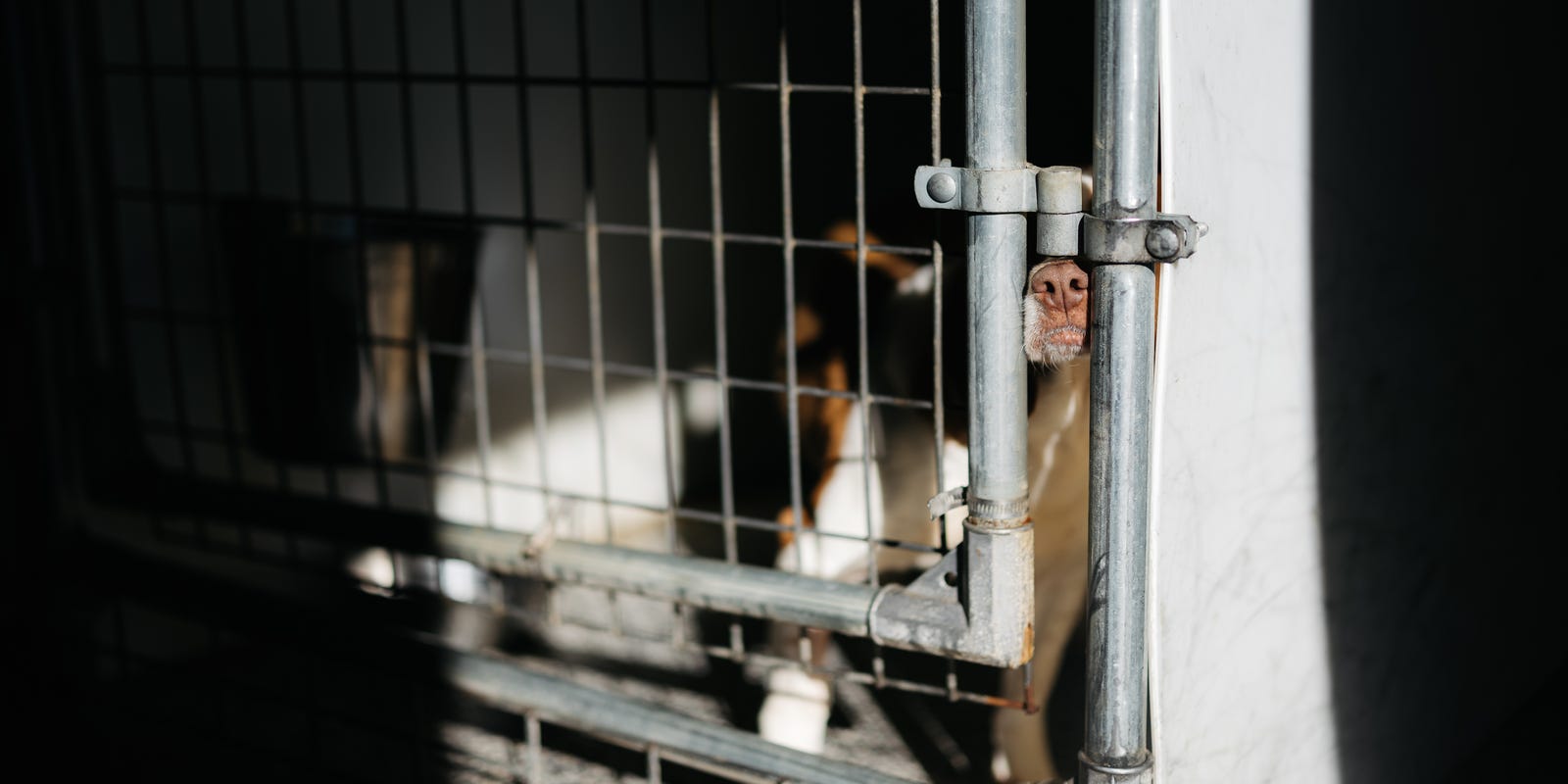If you travel east of Bartlesville for about 10 minutes and venture down a rough dirt road with numerous potholes, you will be warmly welcomed by over a hundred wagging tails eagerly awaiting a gentle scratch behind their ears.
Despite their longing for attention from behind their enclosures, these beagles were not bred for companionship but rather for scientific experimentation—a practice that some argue results in the neglect and desperation of some animals seeking human interaction.
Why choose beagles for such experiments? According to Shannon Keith, an animal rights lawyer and the founder of the Beagle Freedom Project (BFP), beagles are selected because of their docile nature and remarkable resilience even in the face of mistreatment.
Formerly operating under the name Animal Health Innovations, the facility in Nowata was among the few remaining independent laboratories in the country dedicated to testing flea and tick products on animals. For over a decade, under the supervision of the FDA and USDA, the company collaborated with major pharmaceutical and pesticide firms to conduct trials on product effectiveness.
The primary objective of the laboratory was to ascertain whether animal-related products yielded the anticipated outcomes. Only after the FDA confirmed the safety of a product would it proceed to efficacy testing.
Ultimately, the facility’s closure was not triggered by public outcry, legislative changes, or regulatory violations but rather by a timely conversation. Keith mentioned that the owner seemed ready to move on, indicating a broader decline in the industry. The toll of being immersed in animal testing for years can lead to profound emotional distress, as noted by Keith.
Following negotiations with BFP, a nonprofit organization based in Los Angeles dedicated to rescuing animals used in research, an agreement was reached to acquire the 30-acre property in Nowata County. As part of the deal, the owner surrendered his USDA license for testing and agreed to transfer all 150 dogs and 60 cats to the rescue group.
The transition marked the inception of “Freedom Fields,” a transformative initiative led by Keith to repurpose the former testing facility into a rehabilitation center and sanctuary for rescued animals. The property, currently a blend of rundown farm structures and modern kennels, is envisioned to serve as a focal point for animal rights advocacy and education.
Emily Clayton, a BFP staff member who relocated from Los Angeles to care for the animals full-time, played a pivotal role in the property’s conversion. With donations and collaborative efforts, the facility is undergoing a profound metamorphosis from a laboratory setting to a nurturing environment for its inhabitants.
The vision for Freedom Fields includes innovative concepts like a cat cafe for customer interaction with resident felines and initiatives to promote cat adoption. The ongoing efforts aim to facilitate the rehoming and rehabilitation of animals previously subjected to testing, with a focus on spaying and neutering to manage population growth.
Individuals interested in supporting this cause can visit the website for more information. Currently, dogs are available for adoption with a fee of $600, reflecting the ongoing commitment to providing these animals with a second chance at a better life.
